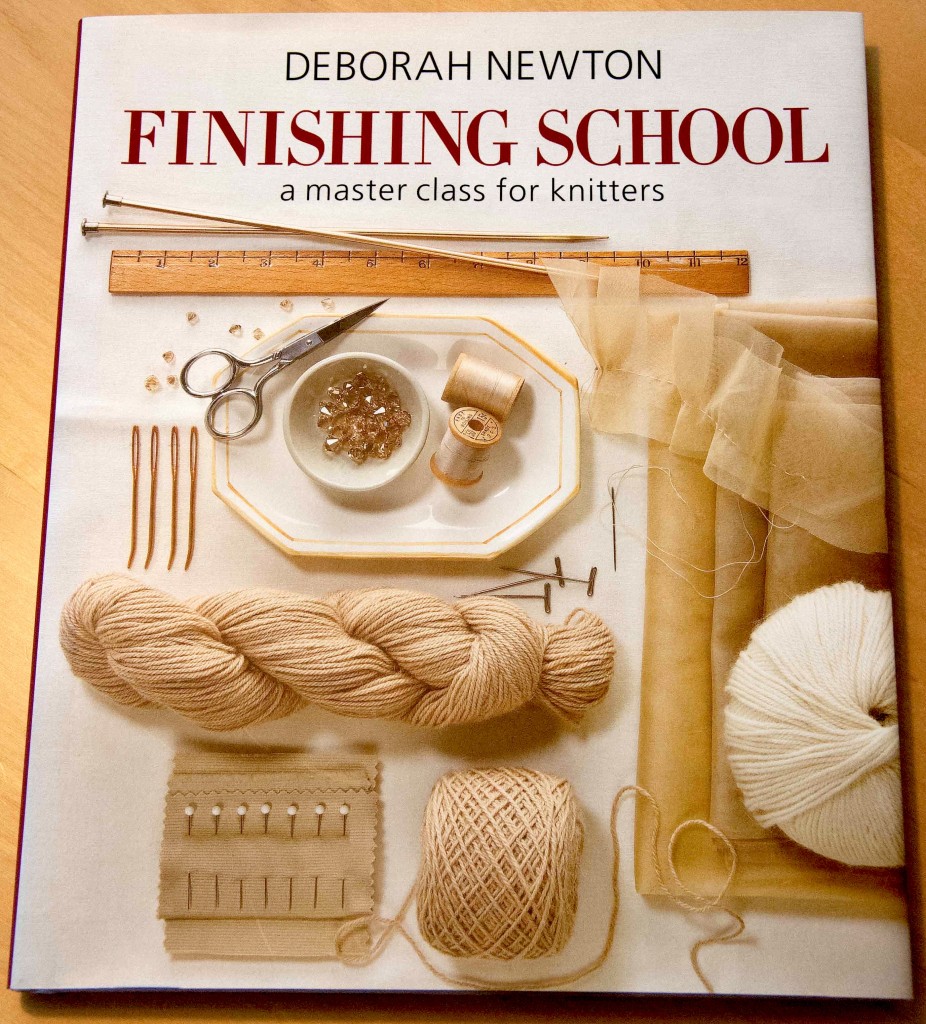Finishing is such an elementary part of knitting that I believe you have to learn to perfection to enjoy. Many knitters tend to avoid projects where time consuming finishing is required just because they do not take any pleasure in sewing, especially compared to knitting the different parts. I, on the other hand, believe that a bit of finishing can sometimes make the difference between looking handmade and looking professional. I have learned to enjoy and take pleasure in my finishing with the aim of making each garments nearly as beautiful on the wrong side as the right side. So do I need yet another book on the topic? Yes, I believe I do! There is so much I – and you – can learn from, the acknowledged designer, Deborah Newton. So off I go to Finishing School!
“Good finishing is just as important as good fit – without it, my sweaters would look homely rather than stylish. There is nothing worse than a bumpy, uneven seam or sloppy or too-tight edgings – these off-kilter details draw the eye away from the beauty of even the most lovely knitted fabric.” Newton claims in the introduction and I could not agree more. I believe – as she does that – it is merely a question of gaining a few skills and thinking ahead. My basic tips are to sew up as you finish knitting the different parts and do it the same way you would knit, stitch by stitch. I become like the knitting process myself and it is the ultimate achievement.
It is a question of respect, to each piece you have knitted – the craft and the material involved – and justifying the hours spent knitting it. So do spend a bit of time doing the finishing and do not rush through it. Newton offers workshops with a number of photos and drawings to guide you on edgings, seaming, lining, custom couture and steeking. The cover photo is the materials used to make a custom couture knit and is 1 of the 14 excellent patterns offered in this comprehensive and resourceful book.
Her final note on finishing is my goal, always: “Through careful attention to detail and an eye toward perfect construction, you can make your sweaters look fabulous. You can learn new techniques and valuable skills. You can repair and rejuvenate. And you can take the old and make it new again. Finishing School is never out of session.” Thank you, Deborah Newton!

